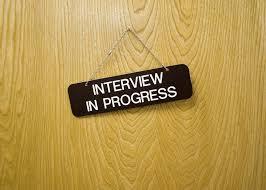
Whether conducted face-to-face, by telephone or via email, entrepreneurial interviews are becoming an increasingly popular tool to be used in the contemporary marketing campaigns. The real success stories behind the stage have always been a great source of inspiration, bringing both – powerful advertising impact and intense interest amongst business circles.
This article will give you a walk-through of what to consider when preparing an interview with an entrepreneur for your blog.
No wonder why there is increased emphasis on the pre-interview preparation. It is a tough job indeed and can be very tricky for several reasons:
- Interviews should be conducted in a way to bring added value to the public, develop entrepreneurs’ favorable repute; boosting your blog popularity and traffic. That means one thing – you need to go that extra mile, being able to deliver a memorable experience to all parties.
- All people are unique. In practice, you would come across totally polar personalities, possessing super specific traits, cherishing different values and often reacting quite controversially in any given situation. The conclusion – you would better be a behavior- based interviewer and good psychologist, then being a stereotyped one, simply following your list of questions.
- You need to devote decent amount of time, exploring your target interviewee’s interests, recent interviews and business sector. This will give you a sober notion of his personal attitude and help you create a questionnaire, strictly corresponding to his communication manner and behavior.
- You cannot underestimate the fact that you are interviewing a famous public figure, a successful leader or reputable manager who as such, needs to be treated very respectfully.
Some tips on making the interview worthy and viral:
- Go into details with the specifics of the business you are about to delve for a successful interview. That will give you the confidence that your questions sound precise, professional and just on the spot.
- Avoid questions that could be followed by short YES/ NO answers. Except that they don’t bring any valuable information, the definitive answers have never been the looked-for result in a professional interview. Use open questions instead, aiming at provoking detailed and quality answers.
- Make sure that questions are clear and can be easily understood both by the interviewee and the audience. Appealing quotes or phrases are always a good tool to catch people’s interest from the very beginning.
- Keep the right balance between professional and friendly attitude. Tone should be amicable to certain extend but still, speech needs to be elegant and courteous.
- Select the questions considering your specific goals and target audience – they need to be engaging and deliver brain teaser answers. To be a notable one, the interview should inspire, people must have something to learn from it!

Accordingly, here are some helpful questions to ask entrepreneurs, which in terms of precision, have been divided in several groups:
1. Ice-Breaking Questions
Those kind of introductory questions are the prep-step in an interview, helping entrepreneurs feel more at ease, melting the distance and inspiring a friendlier atmosphere.That’s the ultimate trick to make them share more.
When meeting entrepreneurs for the first time, you can safely take the floor by asking:
- Let’s test your entrepreneurial intuition. What is the first question you think I am going to ask you?
- Tell me more about yourself? What kind of person are you?
- Try to describe yourself in 3 words only.
2. Standard Informative Questions
After breaking the ice, you can move forward to a series of standard questions providing general information about the company, name, headquarters, company’s vision, mission, goals, values, future projects.
Here, you can try some of these:
- Where did you get your entrepreneurial spirit? Are your parents entrepreneurs?
- What was your key driving force to become an entrepreneur?
- Where did the idea of your business derive from?
- How did you decide on the location for your business?
- How did you come up with the name for your company?
- Considering the fierce competition in Today’s business world, how would you highlight your company’s competitive advantages? What makes it stand out of the crowd?
- How do you handle investors and funding issues in your business?
3. Personal Questions
By asking more personal questions you are going deeper than just scratching the surface. Getting more involved in the talk, you are now bringing the interview to the next level – letting the audience become more familiar with the personal touch behind the business success.
Do not hesitate to ask some of the following question samples:
- Outline the schedule of one of your typical working day?
- What are your hidden inspiration sources? How do you generate new ideas?
- What best motivates you? How have your entrepreneurial motivations changed since you first started?
- How long do you stick with an idea before giving up?
- What’s your greatest entrepreneurial achievement to be proud of?
- What are your shortcuts to successfully handle frustration and stress?
- What book has inspired you the most? ( What is your favorite book?)
- Who is your greatest support when facing up hardships in business?
- What do you consider to be your weaknesses?
- What do you do on a daily basis to grow as an entrepreneur?
- How do you evaluate human resource factor as an inseparable part of your company success?
- What’s your way of hunting talents and building effective working teams to achieve great results?
- What are the main principles you follow to build a successful customer relations?
4. Critical Thinking Questions
Critical thinking quizzes reveal entrepreneurs’ analytical skills when solving a situation and show their ability to weigh the possible solutions before coming up with a final answer. Questions in this category are highly educational and greatly increase the degree of engagement.
Here are a couple of questions that would be beneficial to be asked:
- Do you believe there is a winning formula for becoming a successful entrepreneur? What is yours?
- What is your opinion on the following topic: Are entrepreneurs originally born as such or they are raised to be successful?
- How do you identify business opportunities and what metrics do you use to measure their viability?
- What popular entrepreneurial advice do you agree/ disagree with? Why?
- If you could talk to one person from history, who would it be and why?
- Who is the one entrepreneur to be your greatest example and inspiration?
- How would you scale the advantages and disadvantages of being entrepreneur?
- How would you rank the key 5 skills needed to be a successful entrepreneur?
- How do you define success?
5. Extra Value Questions
The time has come. This is where you start asking questions to provide the best entrepreneurial and business tips , lessons and advices to the audience.
If you want to bring that added value for your readers, do not hesitate to include questions as follows:
- What entrepreneurial tricks have you discovered to keep you focused and productive in your day-to-day busy schedule?
- What are your most effective methods to motivate your team for outstanding results?
- What ‘s your milestones to help you develop a stable company culture and friendly working athmosphere?
- What would you advice to the start-up entrepreneurs?
- What’s your personal manner for balancing work and life?
- Do you wisely consume your time as an entrepreneur? What key activities would you recommend entrepreneurs to invest their time in?
- Do you follow some specific self-control mechanisms to encourage you to keep walking when things are not going as smoothly as planned?
- Do you believe in destiny or do you think you can control your fate?
6. Amusing Questions
To escape a bit from the dry and monotonous business etiquette, find the right timing to fit some jokes in the tone of the discussion.
Bring some fresh air with a set of creative and funny questions such as:
- What’s your favorite quote for describing entrepreneurship?
- What’s your favorite metaphor for describing entrepreneurship?
- Are you an adventurous type of person? What’s the most exciting experience to memorize in your entrepreneurial journey?
- Top 3 places on the globe that you haven’t conquered yet but would love to?
- Top 3 websites/blogs that you can’t imagine your day without? Give your reasons.
- Top 3 mobile apps that make your work more effective?
7. “ What If “ Questions
They will help you put entrepreneurs in a funny situation and play some role scenarios. People are always curious to know what successful people would do if placed under weird circumstances and how would they react if set out of their everyday environment.
Why don’t you ask them some of the following?
- What are the 3 things you would bring with you if teleported to a desert island?
- If you had a magic stick, which are the 3 things you would change in the world?
- What is the one issue about your life experience you would alter if you had the chance to?
- If you were to write a book about yourself, how would you name it?
8. Dare to Answer Questions
Those kinds of questions are to be asked at interviewers’ own risk, since some of them could be accepted as too provocative. On the other hand they are an effective way to convert the interview into a highly rated material, while bringing popularity to both parties.
You can try with:
- Are there any missed opportunities that you wish to have leveraged?
- What is your greatest fear, and how do you manage fear in general?
- How do you think being an entrepreneur has turned you into a better person?
- What makes you feel out of your comfortable zone? What are your ways to handle these situations?
- Share some of your failures and the best lessons you have learned from them?
- What sacrifices have you had to make to be a successful entrepreneur?
- What was the toughest moment you have experienced in your business practice? How did you succeed to get over it and move forward?
Conclusion:
Following those advice will guide you throughout the interview process. However, sometimes topics are naturally flowing from one to another leaving you in a chaos of thoughts so you have to be prepared to think outside “your question agenda”. In this case, you have to react fast, try to stay confident and be ready to bring more colors to the interview. Try to shape the interview more like a business dialogues rather than a boring monolog by being an active listener. Stay in motion; help entrepreneurs with extra questions if needed to keep the conversation smoothly going.
There is no general rule on the number of questions to be included in an interview. Keeping it simple and concise, often between 10 and 20 questions is a good working practice, but again, it can vary depending on the types of questions asked and the subsequent length of answers delivered. Making both entrepreneurs and public enthusiastic with the interview held, would be your best prize for being brilliant in what you do.
email&locale;&layout;&action;&width;&height;&colorscheme;